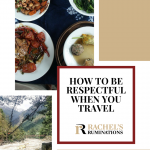How to be respectful when you travel
When I was traveling in Parvati Valley and then on my Manali trip in the Indian Himalayas, I was surprised to see how many travelers, both local and foreigners, boasted that they were great explorers and were staying in the Himalayas for months.
Note: This is a guest post by Priyanka Gupta.
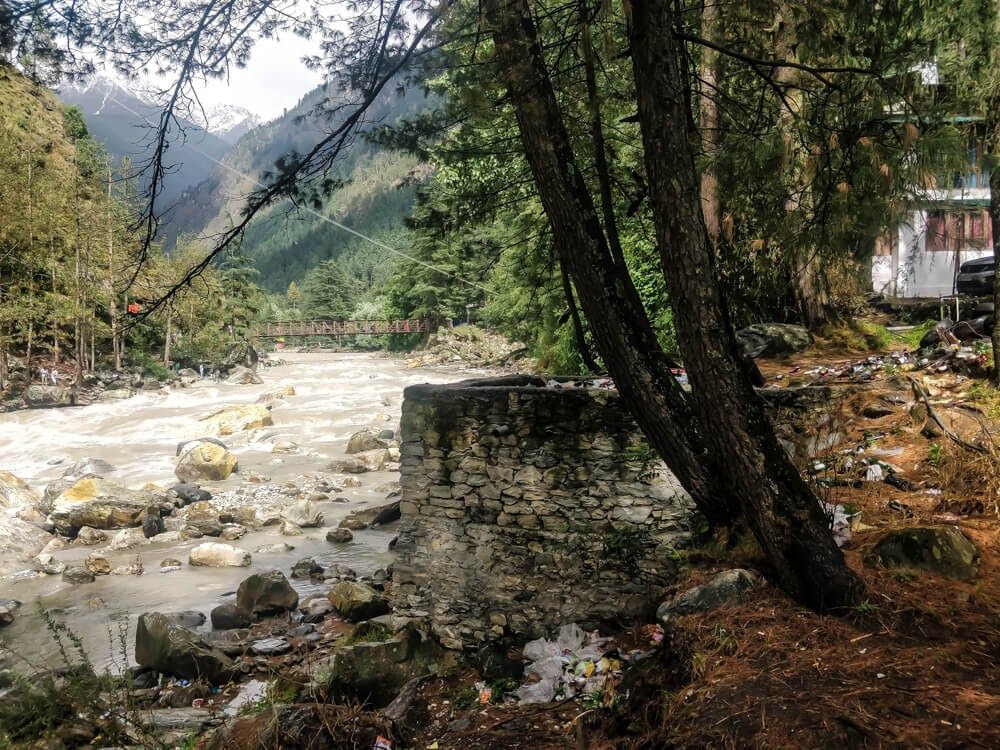
Disclosure: This article contains Amazon affiliate links. If you click on one and make a purchase, I (Rachel) will receive a small percentage of what you spend. This will not affect your price.
During the three months I stayed in Himachal, some of these “great travelers” never said thanks to the locals and played really loud music even while hiking in the hills. They smoked past midnight talking loudly in compounds. This happened right under the family rooms where kids slept to go to school in the morning, parents finished their chores or prepared to go to the cornfields at dawn, and the elderly rested.
Many Himalayan valleys were strewn with alcohol bottles and plastics; tourists had consumed alcohol and had left them behind in the most pristine spots.
Himachal locals weren’t happy about the loud noise or the plastics, but they needed money. After all, tourism is one of their biggest revenue generators. It was partly the local communities’ fault too, as they had allowed the reckless activities and encouraged the careless behavior by never asking their guests to stay within responsible boundaries. Regardless of who was responsible, the end result was chaos.
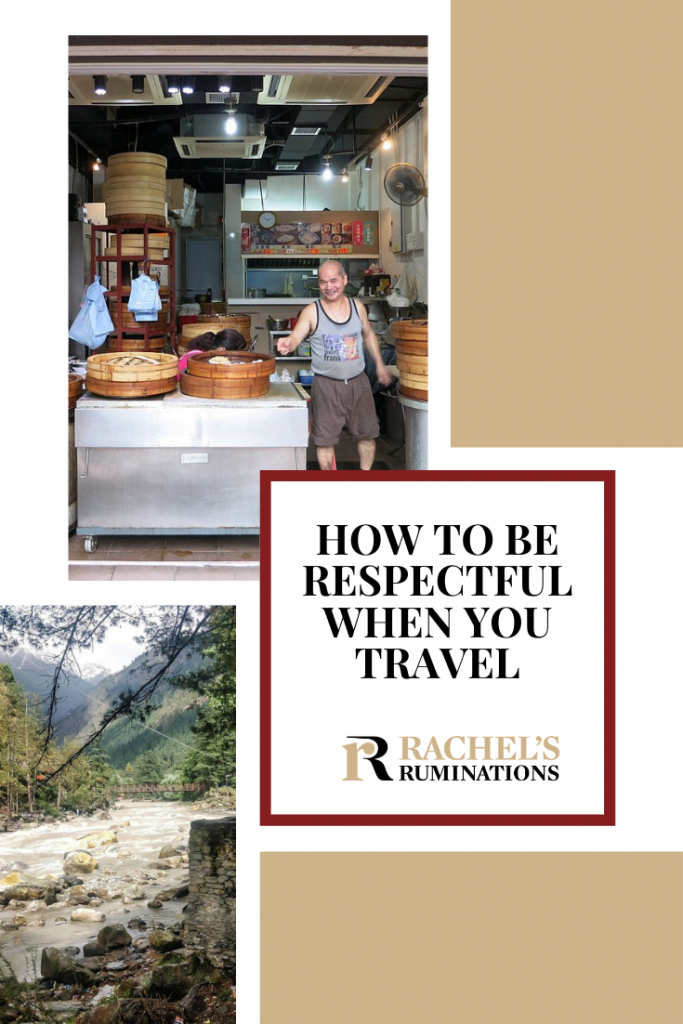
How we behave while traveling
As we travel more and more, we find new meaning every day. For some it is about relaxing in between hard-working months or weeks. Many people consider travel as time away with their loved ones and families. For many, traveling is a mode to explore the world and learn new things.
As much as we love to be respectful when we travel and caring towards others, we all make mistakes. In our rush to see things or find a way to call home we forget that we are in a new place, a new city, perhaps a different country, and things work differently everywhere. We forget how to speak to the people who serve us, and we never stop to say thanks. We even feel disgusted by the local customs and loudly brag about how cool back home is. Or even if we find a broken seat on a bus or a train we start a three-hour rant about how things at home are perfect and where we are traveling is so run-down.
If all we did was complain or belittle local customs or people, then what good would traveling do us? We wouldn’t be learning new ways of doing things but would be stuck in our minds about how we do things better. We wouldn’t appreciate new food but would crave what we had at home. We wouldn’t be able to respect people who have made a different life in another geography and we wouldn’t learn anything about their way of life.
Travel would only be about sandy white beaches, perfect olive cocktails, and whether we got a tan or not.
But the truth is that travel could be so much more. To say the least, traveling could teach us a lot about the bigger picture and how things are done around the world.
Here are some other articles you might find useful:
Being respectful when you travel
Let us look at some ways by which travelers can be more responsible and respectful towards the local community to create a meaningful and sustainable exchange between the two.
1. Acknowledge that culture is a matter of geography and family history.
Whether it is the slums of Mumbai or Corfu island in Greece, people living there most likely had little or no control over their fate. They happened to be born into a family, in a place, and with certain financial constraints or liberties. So while treating financially stable and educated people well comes naturally to us, we shouldn’t disrespect those who don’t have money or education or live in poor conditions just because they are there. We could have been in their place easily.
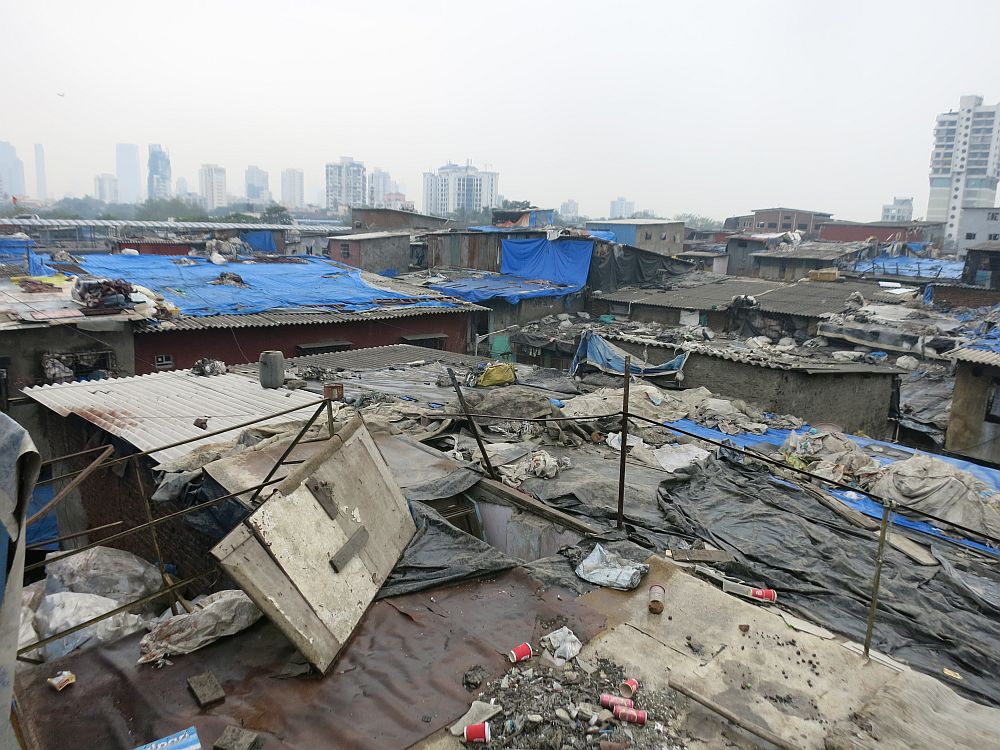
So you should not take a slum tour to Mumbai with the attitude that you’re going to see a zoo where people are displayed for your viewing pleasure before you happily return to a comfortable hotel room. Instead, be conscious that you are going to see some people and understand what they go through. Consider how you can add value to help improve their situation. There is little value in belittling others but a lot more in looking out for each other.
2. Choose being intrigued over being judgmental.
While we might feel sickened by the stench from the roadside barbecue grill, we have no right to make a face or curse or discuss with other travelers how the locals eat anything they can get their hands on. Unless we know the local’s history or family background or local customs, we cannot make a derogatory comment on their way of eating or living.
Instead, choose to be intrigued – I wonder what they are eating that smells like that? – instead of judging – What all crap do these people eat, man? This would take us a long way toward understanding different cultures and habits: toward respectful travel.
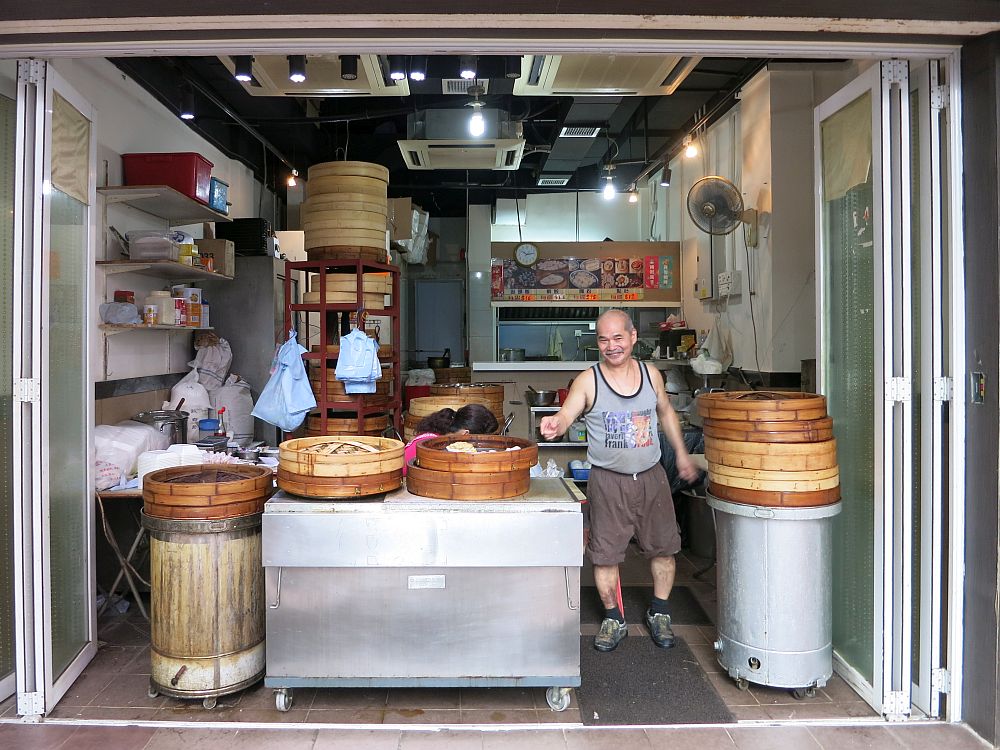
A tip: a respectful question can help create a meaningful exchange between traveler and local, which could turn into a beautiful relationship.
3. When in Rome, do as the Romans do.
This saying is a cliché for a good reason. I’ve seen tourists wearing shorts in Indonesian temples or tank tops in Burmese homestays where families keep themselves covered.
Although the exchange is mutual and the locals should also see the various ways of living and dressing that travelers bring in from around the world, anything different should be introduced slowly. Otherwise the local people will only end up feeling disrespected in their homes.
A knee-length dress or a complete shirt with sleeves will make more of a tolerable impression than a short skirt or a too-low neckline which would just seem downright disrespectful. Globetrotters should first adapt to local rituals and ways so that they appear less hostile. Later they can think of bringing a change. Make friends and locals will be more than happy to look at the world differently, too.
4. Don’t overcrowd places that are already overcrowded.
Amsterdam and Geirangerfjord and Ooty all suffer from overcrowding of tourists. Locals can’t live peacefully in their own homes anymore because of various issues arising from a large influx of tourists: waste management problems, displaced housing, increased traffic, overburdened infrastructure, security issues, etc. So while we may want to go to the top ten places on the Conde Nast list, our first responsibility is to see if it is even ethical or local-friendly to visit these destinations.

5. Leave a place as you found it.
“Put that glass back on the shelf” and “Don’t throw the paper here when the dustbin is right outside the room!” were some things I heard from my mother every day. The lesson learned was that everything has its own place.
Destinations we see are not any different. Whether we go on a remote hike into the mountains or we decide to drink lemon cola on the bazaar streets, we cannot throw garbage just anywhere we like or toss the bottle as per our convenience. Who is responsible for cleaning up after us? We have to do it ourselves. After all, you may leave that city or mountain or street after a day or an hour or a minute, but the locals continue to live there in their homes.
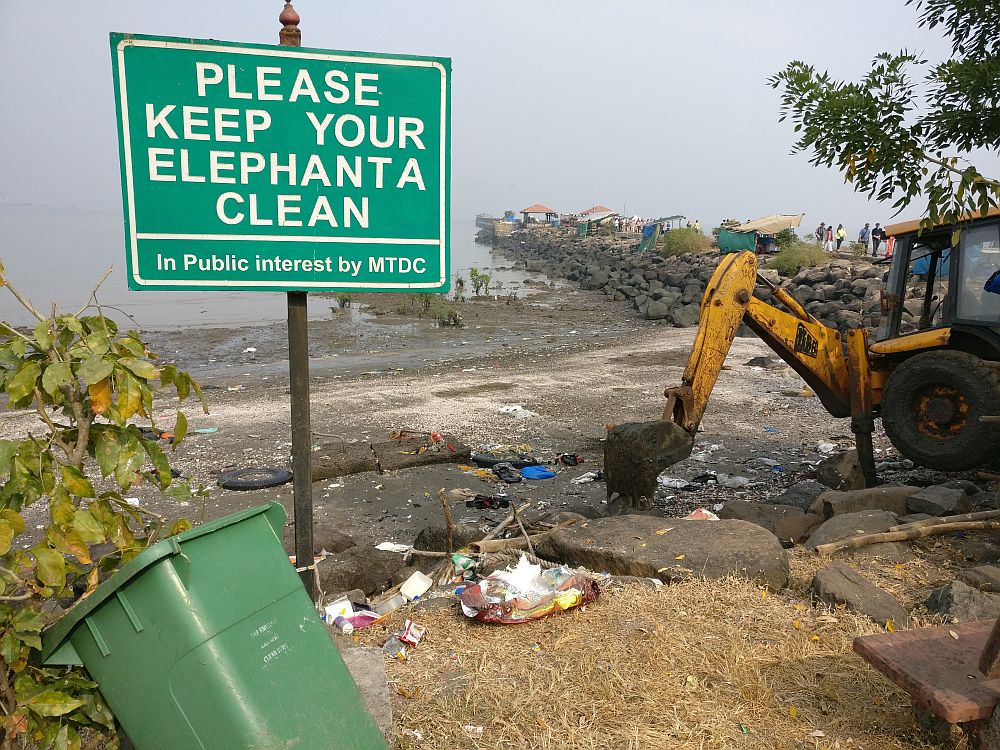
Being respectful and considerate travelers is the least we can do for people who allow us into their homes and lives. Shared above are only some ways of being courteous to the locals.
A good rule of thumb is to ask ourselves if our words or body language or actions would hurt someone in the destination. Think about this before acting, and you are good to go.
Let us make the world a better place to travel and ourselves better explorers.
What are some ways in which you are a respectful traveler? Please share you thoughts in the comments below.
My travel recommendations
Planning travel
- Skyscanner is where I always start my flight searches.
- Booking.com is the company I use most for finding accommodations. If you prefer, Expedia offers more or less the same.
- Discover Cars offers an easy way to compare prices from all of the major car-rental companies in one place.
- Use Viator or GetYourGuide to find walking tours, day tours, airport pickups, city cards, tickets and whatever else you need at your destination.
- Bookmundi is great when you’re looking for a longer tour of a few days to a few weeks, private or with a group, pretty much anywhere in the world. Lots of different tour companies list their tours here, so you can comparison shop.
- GetTransfer is the place to book your airport-to-hotel transfers (and vice-versa). It’s so reassuring to have this all set up and paid for ahead of time, rather than having to make decisions after a long, tiring flight!
- Buy a GoCity Pass when you’re planning to do a lot of sightseeing on a city trip. It can save you a lot on admissions to museums and other attractions in big cities like New York and Amsterdam.
- Ferryhopper is a convenient way to book ferries ahead of time. They cover ferry bookings in 33 different countries at last count.
Other travel-related items
- It’s really awkward to have to rely on WIFI when you travel overseas. I’ve tried several e-sim cards, and GigSky’s e-sim was the one that was easiest to activate and use. You buy it through their app and activate it when you need it. Use the code RACHEL10 to get a 10% discount!
- Another option I just recently tried for the first time is a portable wifi modem by WifiCandy. It supports up to 8 devices and you just carry it along in your pocket or bag! If you’re traveling with a family or group, it might end up cheaper to use than an e-sim. Use the code RACHELSRUMINATIONS for a 10% discount.
- I’m a fan of SCOTTeVEST’s jackets and vests because when I wear one, I don’t have to carry a handbag. I feel like all my stuff is safer when I travel because it’s in inside pockets close to my body.
- I use ExpressVPN on my phone and laptop when I travel. It keeps me safe from hackers when I use public or hotel wifi.


